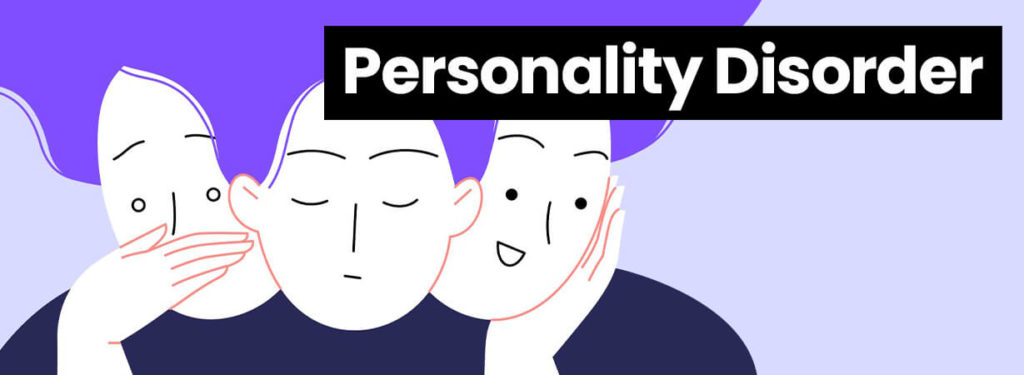Personality Disorder Treatment
Personality Disorder Treatment Center
As an award winning science based addiction treatment center, Inspire Malibu also excels at the diagnosis and treatment of personality disorders. The clinical staff at our Personality Disorder Treatment Center in Los Angeles, California provides the latest and most effective therapies for patients with psychiatric conditions, as well as for those suffering addiction issues in combination with personality disorders.

What Are Personality Disorders?
Published by the American Psychiatric Association (APA), the Diagnostic and Statistical Manual of Mental Disorders (DSM), currently in its fifth edition, is the industry standard for defining and diagnosing mental disorders. According to the DSM-5, personality disorders are ways of thinking and feeling about oneself and others that drastically and negatively affects how a person functions in life.
Though the origins are not entirely understood, mental health practitioners generally attribute personality disorders to genetics, environment or both. Symptoms can vary from mild to severe. They usually involve a person’s inability to adjust to environmental or circumstantial change due to errant thoughts, emotions, impulses and self-control.
Symptoms can be present as early as adolescence, though personality disorders might not be diagnosed until signs of severe mood swings or substance abuse occur in adulthood.
Addiction and Personality Disorders
Substance Use Disorders and Personality Disorders frequently occur together. A research study by Zimmerman and Coryell (1989) found that about 43-77% of people diagnosed with personality disorders would also meet the criteria for an alcohol use disorder at some point during their lives. Other researchers, such as Verheul and colleagues (1995, 1998), have looked at the co-occurrence between personality disorders and substance use disorders from the opposite angle. They reported that 44% of people with alcohol use disorders would meet the criteria for a personality disorder. Furthermore, 77% of people who abuse opiates would meet the criteria for a personality disorder. In particular, two personality disorders frequently co-occur with substance use disorders. These are antisocial personality disorder and borderline personality disorder (Verheul, van den Brink & Hartgers, 1995).
Antisocial personality disorder is the adult version of a childhood disorder called conduct disorder. People with these disorders demonstrate a repeated pattern of disregard for others. This lack of disregard is evidenced by a failure to conform to social norms; repeated lying; impulsivity; aggressiveness; violence; irresponsibility; and a lack of remorse for the mistreatment of others. Research has found that first-degree relatives of people with antisocial personality disorder have a much higher risk of developing both antisocial personality disorder and substance-use disorders (DSM-IV-TR, 2000).
People with borderline personality disorder have unstable relationships and intense, unregulated emotions. People with borderline personality disorder are at greater risk for substance use disorders than the general population. Like many substance use disorders, borderline personality disorder is characterized by intense anger, mood swings, and impulsive, risky behavior.
- Antisocial Personality Disorder
- Borderline Personality Disorder (BPD)
- Avoidant Personality Disorder
- Dependent Personality Disorder
- Narcissistic Personality Disorder
- Histrionic Personality Disorder
- Obsessive-Compulsive Personality Disorder (OCD)
- Paranoid Personality Disorder
- Schizoid Personality Disorder
- Schizotypal Personality Disorder
While the types of personality disorders have remained the same in the DSM-5, there have been new disorders added, as well as criteria changes to other disorders. The way in which mental health professionals code personality disorders has also been updated.
Inspire Malibu’s Diagnostic Expertise
As an evidence-based personality disorder treatment center, our physicians perform a thorough psychological evaluation for every patient designed to pinpoint the exact disorder and its severity.
While most addiction treatment centers are unable or unwilling to treat mental health issues, our physicians use treatment modalities specifically designed for these psychiatric conditions, particularly Borderline Personality Disorder (BPD).
The patterns of BPD, according to the DSM-5, are present by early adulthood, and symptoms of BPD can include:
- Difficulty regulating emotions
- Poor impulse control
- High sensitivity to rejection
- Alcohol, substance or eating disorders
- Self-destructive behavior, such as self-mutilation
- Suicidal Behavior
While less than 2 percent of the population struggles with BPD, it is more common than most people think and there are even some famous people with Borderline Personality Disorder that manage to live with it.
Personality Disorder Treatment
Personality disorders take time to improve, but there is increasing evidence that certain therapies are effective. Some patients respond well when medication is added to their treatment.
Inspire Malibu incorporates Dr. Marsha Linehan’s Dialectical Behavior Therapy technique(University of Washington) in our approach to the treatment of borderline personality disorder, along with other cognitive behavioral tools.
Dialectical Behavior Therapy (DBT) is based on acceptance without judgment. The goal for patients is to be capable of calmly recognizing negative situations without becoming overwhelmed by them. This approach helps those suffering from BPD to make better decisions and avoid falling into a cycle of intense, desperate and destructive behavior.